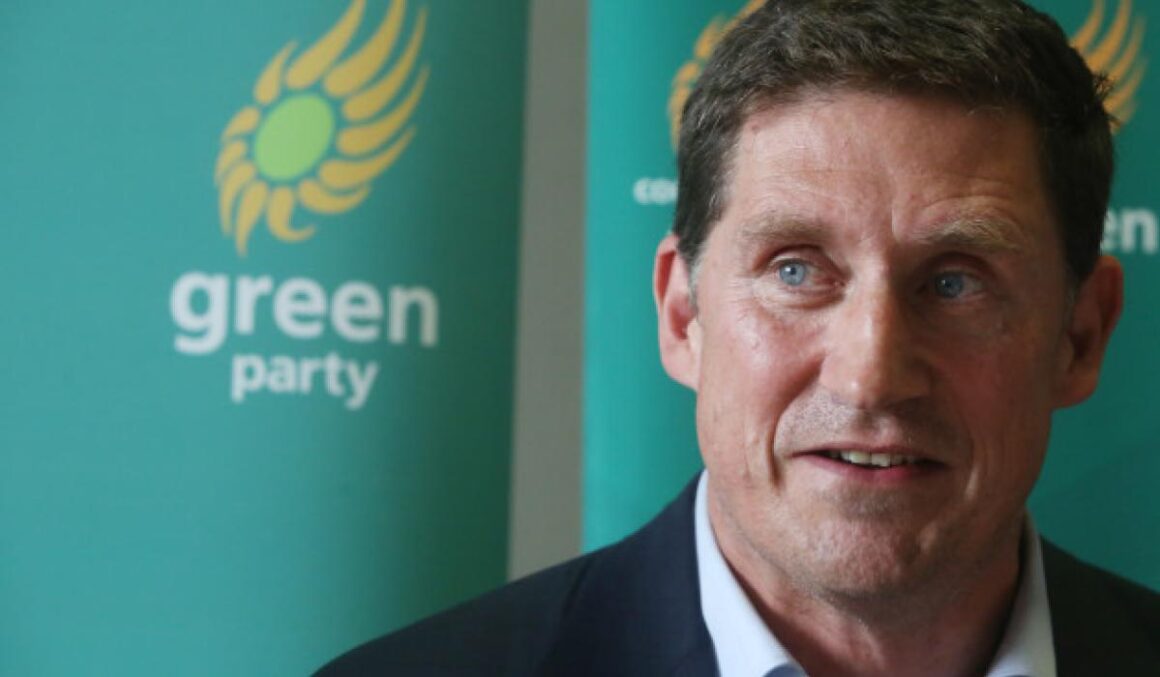By Aedan Hamrock
In late July the government announced what they claimed was an ‘ambitious’ set of commitments to seriously reduce Ireland’s greenhouse gas emissions by 2030. This comes in the face of an unprecedented summer heatwave in Europe that saw record temperatures hit Ireland and wildfires in Europe and even Britain. Of course, in such a situation the current government – especially with the Greens in coalition – has to be seen to be taking the necessary steps to avert a deepening climate crisis.
But how well do the government’s target emissions stack up to what is necessary, and such as they are, can they be expected to achieve their own objectives?
Plan doesn’t inspire confidence
The plan commits to a reduction of 51% of total greenhouse gas emissions by 2030, with specific targets for different sectors. To avoid a global temperature rise of above 1.5ºC by 2100, and hence the worst and more unpredictable effects of climate change, there needs to be a reduction of global emissions by 50% by 2030 and net zero by 2050. This was the “aspirational” goal of the 2015 Paris Agreement, although the commitments all states have ultimately signed up to would fall short of even a 2ºC rise.
The Irish government’s goal of a reduction of 51% by 2030 would seem to fall within the ballpark of what is necessary, but as a more economically developed country with higher per capita carbon consumption, there should be a more rapid reduction to account for the slower transition of the poorer countries of the world. This was pointed out by climate scientist Professor Kevin Anderson in a January Oireactas joint committee, who also advocated that the state reduce its emissions by between 12-30% per annum, with zero emissions to be reached sometime between 2029 and 2038, if Ireland is serious about being part of a global effort to keep below even 2ºC.
As for merely reaching the goal the government has actually committed to, unfortunately there is reason to be sceptical about its ability to deliver. Not least because all Fine Gael / Fianna Fáil governments have abysmally failed to meet every target thus far. For instance, and embarrassingly for the Green Party, the government has already capitulated to the demands of the agribusiness lobby in recent weeks. Agriculture alone currently accounts for 37% of total Irish emissions. While initially arguing for a reduction target of closer to 30%, the Green party finally conceded to pressure from the farming lobby and agreed to a 25% reduction. Even with the proposed 30% target, this would have been the lowest of any sector, and yet business interests proved intractable. With this precedent set, it is easy to imagine the government backing down to business interests in other sectors.
Moreover, the sectoral target for electrical generation is to reach a 75% reduction in emissions by 2030. Wind Energy Ireland has published a report questioning how serious the government is about its declared “climate emergency” outlining how even if currently planned wind turbine construction projects are completed, this won’t be enough to meet the 2030 target, with 11 million tons more of greenhouse gases expected to be produced, and also recommended bringing offshore wind projects online sooner than the planned 2028.
It also highlighted issues with the country’s electricity grid, which would need to be updated to accommodate a large increase in renewable energy production. This requires new infrastructure for increased energy storage capacity and for interconnectors to be constructed to connect Ireland’s grid with Europe’s. None of which is in train as it stands.
Capitalism won’t deliver
In truth, these frustrations are inevitable when it comes to addressing the challenges of climate change on the basis of the market and capitalism. Those interventions that the state and the EU generally carry out centre around limited incentives and fines for private actors in the economy. This is a policy that’s doomed to failure.
The task of moving beyond fossil fuels entirely in the space of a couple of decades is a massive undertaking that requires fundamental change. It necessitates a break with the private market and a turn to democratic public ownership and control of the economy.
In reality, the rapid and radical changes we need are achievable, even in a short timescale, but only on the basis of democratic socialist planning and public ownership of the key sectors of the economy. This is certainly the only way to achieve a genuinely ‘just transition’ (which is becoming an increasingly meaningless term in the mouths of right-wing politicians). A planned economy under the direction of the working class – those most acutely affected by climate change – is best placed to prioritise decarbonisation by rapidly deploying renewable energy, building reliable mass transit and retrofitting homes, etc.
Crucially, planning for the environment must be continental or even global in scale, to build international energy grids, ideal for renewable energy, and to assist the poorer countries in more rapidly transitioning beyond fossil fuels while improving living standards – an aim that the capitalist states that signed up to the Paris Agreement support only rhetorically.












